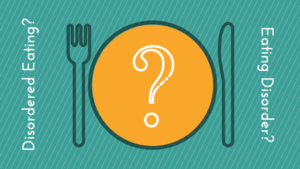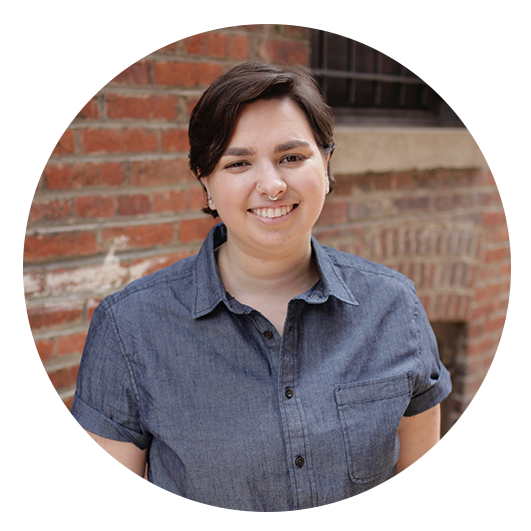
This is part 2 of a two-part series on eating disorders.
It can often be confusing to know the difference between disordered eating and eating disorders. Though the two sound very similar, they have very different meanings and effects on those that exhibit the signs of each.
Disordered eating is not a diagnosable mental illness, unlike anorexia, bulimia, or binge eating disorders, for example, which meet the diagnostic criteria set forth by the DSM (Diagnostic and Statistical Manual of Mental Disorders). The main difference is in degree, or severity, because on the outside many of the behaviors may seem to be the same.
Someone struggling with an eating disorder is likely to exhibit many behaviors whereas someone with disordered eating may engage in fewer. However, both involve an unhealthy relationship with food, should be taken seriously, and treated.
1. Intuitive eating
Those with disordered eating do not struggle with intuitive eating—they are able to experience hunger cues and will satisfy their body’s needs. Individuals with an eating disorder may (or may not) experience hunger cues, but either refuse to satiate themselves or binge. Eating disorders can lead to the loss of hunger cures as the body begins to realize it is wasted energy, as the signal to eat will be ignored
2. Emotions
While disordered eating is problematic, one’s feelings towards food and eating is generally neutral. For someone with an eating disorder, on the other hand, negative emotions are associated with food and eating. Certain foods can even trigger uncomfortable emotions which further reinforce the eating disorder behavior. There is an extreme fear of losing control for those with an eating disorder.
3. Socializing
Disordered eating does not typically interfere with one’s social life. Eating disorders, in contrast, often inhibit one’s ability to engage in social activities. This is in part due to the fact that many social outings revolve around meals, which can be a very stressful situation. Thus, socializing is frequently avoided.
4. Relation to others
Someone who exhibits disordered eating behaviors may compare themselves to others and judge their bodies, but someone with an eating disorder competes with others to have the “best” body.
5. Cooking
While those with disordered eating may be thoughtful about what they prepare for themselves, cooking does not produce a sense of fear or dread. With eating disorders, there are often certain foods that are deemed “safe foods” that one typically sticks to as well as “fear foods” which are to be avoided. Someone with an eating disorder may use specific plates or bowls that they know—they are familiar with what their food looks like in it and how much it holds. Cooking may serve as a form of control.
6. Concentration
Disordered eating does not interfere with one’s ability to participate in daily activities without thinking about food until it actually becomes meal time. Individuals with eating disorders spend a large portion of their mental energy on and time thinking about food and calories and how it will affect them.
7. Weight
While someone with disordered eating can be concerned about their weight, it does not dominate their thoughts and actions. They may have a weight in mind that they would like to reach, but it is typically within reason and generally they stop once they get to that weight. Eating disorder behaviors frequently include individuals weighing themselves multiple times a day. They likely think about food and weight throughout the day—their thoughts are taken captive.
Their goal weight is often unhealthy, and even if that weight has been reached it will no longer be satisfactory and a new goal weight will be established. Losing weight is a challenge to be met for someone struggling with an eating disorder.
8. Mindful eating
An exercise that includes mindful eating would not really affect those who engage in disordered eating. However, for those with an eating disorder it can be extremely anxiety inducing and create panic. It makes the mental calculator start going and creates a focus on the emotions that are triggers when being faced with eating food, especially something unfamiliar and not prepared by oneself.
Remember, if you’re worried about yourself or a friend, there are people who can help. You can contact the Crisis Text Line for 24/7 support — text “BRAVE” to 741-741.
Also see “How to Help a Friend With an Eating Disorder,” part 1 of this series.



